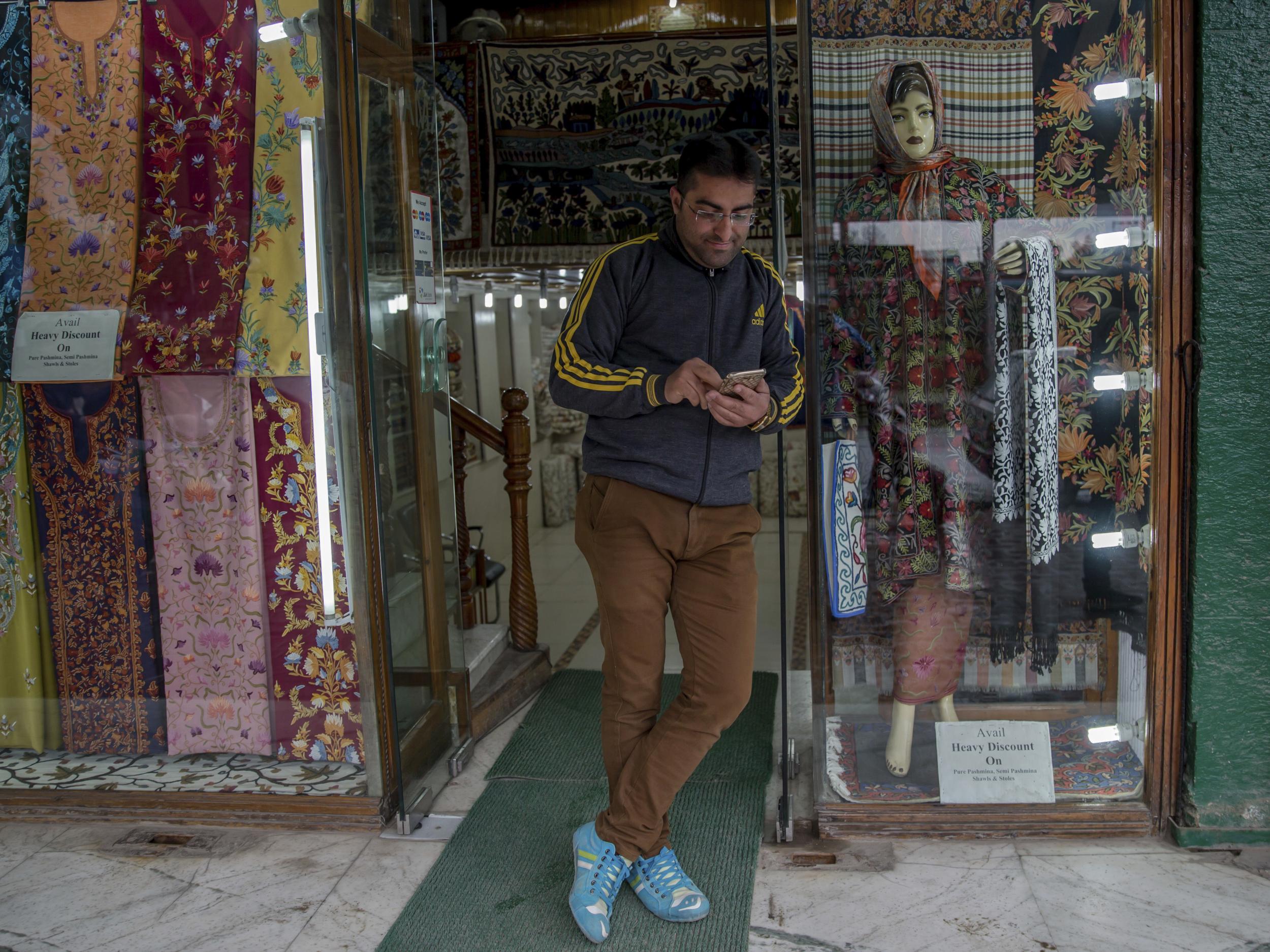India bans 22 social media sites in Kashmir over alleged abuse videos
Ruling hits Facebook and Twitter and marks crackdown on viral clips discrediting state forces in disputed territory

Authorities in Indian-controlled Kashmir have banned 22 social media sites in an effort to calm tensions in the disputed region after videos depicting the alleged abuse of Kashmiris by Indian forces fuelled protests. But the sites remained online Thursday as the local telecom company struggled to block them.
The government said Wednesday that the one-month ban was necessary for public safety because social media were being “misused by anti-national and anti-social elements.”
“It's being felt that continued misuse of social networking sites and instant messaging services is likely to be detrimental to the interests of peace and tranquillity in the state,” the public order said.
Pranesh Prakash, policy director for the Indian advocacy group the Center for Internet and Society, called the ban a “blow to freedom of speech” and “legally unprecedented in India.”
An official with Kashmir's state-owned telecom company, Bharat Sanchar Nigam Ltd., said engineers were still working on shutting down the 22 sites, including Facebook and Twitter, but so far had been unable to do so without freezing the internet across the Himalayan region. The official spoke on condition of anonymity because he was not authorised to give technical details of the effort to the media.
Meanwhile, 3G and 4G cellphone service has been suspended for more than a week, but slower 2G service is still available.
Residents of Srinagar, the region's main city, were busily downloading documents, software and applications onto their smartphones which would likely be able to circumvent the social media block once it goes into effect. Many expressed relief to still have internet access Thursday morning.
“It was a welcome surprise,” said Tariq Ahmed, a 24-year-old university student. “It appears they've hit a technical glitch to block social media en mass.”
While the government has halted internet service in Kashmir in previous attempts to prevent anti-India demonstrations, this is the first time they have done so in response to the circulation of videos and photos showing alleged military abuse.
Others mocked the government. A Facebook post by Kashmiri writer Arif Ayaz Parrey said the ban showed “the Indian government has decided to take on the collective subversive wisdom of cyberspace humanity.”
Indian police and paramilitary officials accuse agitators of using social media to instigate violence.
An international journalists' rights group urged Indian authorities to immediately revoke the “sweeping censorship of social media,” saying it “will bring neither peace nor order” in the region.
“Such broad censorship clearly violates the democratic ideals and human rights India purports to uphold,” said Steven Butler, Asia Program coordinator at the New York-based Committee to Protect Journalists.
The statement quoted a 2016 report from the US think tank the Brookings Institution saying that India blocked access to the internet in various regions to prevent demonstrations 22 times in the 12 months starting in July 2015, “more often than did Syria, Pakistan and Turkey combined.”
Pavan Duggal, an Indian lawyer and expert in cyberlaw, said the government can block social media “if it is necessary and expedient to do so in the interest of sovereignty and integrity of India.”
But such “blocking is of no consequence, given the intrinsic ability of people to use proxy servers and access the said blocked websites,” he said. “Blocking websites is like trying to fix a leaking roof by Band-Aid.”
Kashmiris have been uploading videos and photos of alleged abuse for some years, but several recently posted clips, captured in the days surrounding a violence-plagued local election on April 9, have proven to be especially powerful and have helped to intensify anti-India protests.
One video shows a stone-throwing teenage boy being shot by a soldier from a few metres (yards) away. Another shows soldiers making a group of young men, held inside an armoured vehicle, shout profanities against Pakistan while a soldier kicks and slaps them with a stick. The video pans to a young boy's bleeding face as he cries. Yet another clip shows three soldiers holding a teenage boy down with their boots and beating him on his back.
The video that drew the most outrage was of young shawl weaver Farooq Ahmed Dar tied to the hood of an army jeep as it patrolled villages on voting day. A soldier can be heard saying in Hindi over a loudspeaker, “Stone throwers will meet a similar fate,” as residents look on aghast.
Protests and clashes are an almost daily occurrence in Indian-administered Kashmir, where anti-India sentiment runs deep among the mostly Muslim population after decades of military crackdowns. Disputes over control of the Kashmir region, claimed by both India and Pakistan, have sparked two wars between the nations since 1947.
Copyright Associated Press
Join our commenting forum
Join thought-provoking conversations, follow other Independent readers and see their replies
Comments
Bookmark popover
Removed from bookmarks